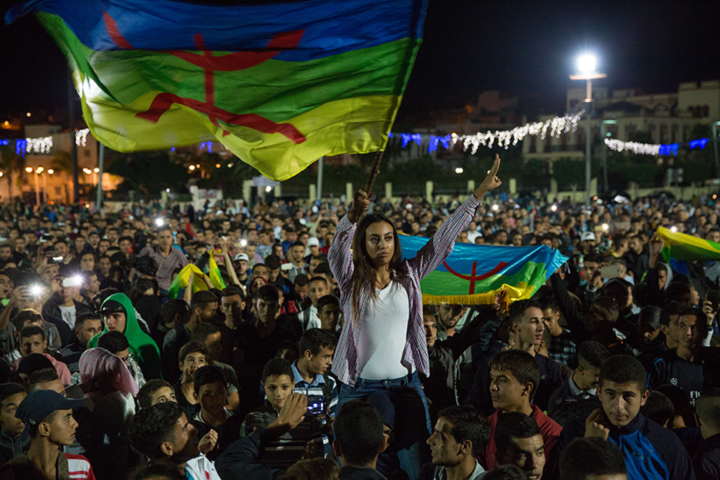In North Africa among the Berbers, the January 12th is the 1st day of the year 2971 of the Amazigh (Berber) calendar which begins in 950 BC, date of the victory of the Berber king Chachnaq over the pharaoh Ramses III where the Berber king Sheshonq I was enthroned Pharaoh of Egypt and founded the XXII Dynasty which ruled Egypt until 715 BC.
By Rabah Arkam
This Berber king had succeeded in unifying Egypt and then invading the kingdom of Israel. He is said to have captured the treasures of Solomon’s temple in Jerusalem in 926 BC. This date is mentioned in the Bible and would therefore constitute the first date in Berber history on a written medium. King Sheshonq is referred to in the Bible as Sésaq and Shishaq in ancient Hebrew. This Berber New Year is called “Yennayer”, etymologically, the name is made up of “Yen”, which means “first”, and “Ayer”, which means “month”.
Long marginalized by regimes acquired in the Arab-Muslim ideology, that each year, the Islamists launch a campaign against the celebration of Yennayer, declaring this festival a sin (haram) which does not prevent this festival from being more and more most popular.
The Berbers of North Africa today try to give shape to their history and their identity within society to celebrate the New Year Yennayer marks New Year’s Day on the agrarian calendar, used since antiquity by Berber. It corresponds to the 12th day of January of the Julian calendar, like the Gregorian calendar, the Berber calendar is divided into twelve months and has been used since Antiquity by the peoples of North Africa (Kabyles, Riffs, Tuaregs, Siwa…).
Families traditionally share a meal based on poultry couscous called (Imensi n’Yennayer) where the whole family gets together. It is customary to leave a ration and a spoon for anyone absent, distant relative or passing poor. This must be generous to symbolize the abundance of the opening year, a milestone event in the history of the Berber people.
The Amazighs, better known under the name of Berbers, constitute a mosaic of peoples, from Egypt to the Canary Islands, via Algeria, Tunisia, Niger or Mali. They are called “Imazighen”, plural of Amazigh, which means “Free man”. Their language is called Tamazight. Although they have managed to secure more rights over the years, Berbers continue to fight for greater recognition of their identity and culture.
The Berbers have always been victims of marginalization, exclusion and denial of their cultural specificities, on the part of the States which identify themselves in their Constitution as being of the Arabic language and of the Muslim religion. Whether in Morocco or Algeria, as evidenced by the various uprisings in the Rif or in Kabylia, there are several types of discrimination, Berber organizations deplore a rejection of their culture, despite the fierce fight of the Kabyle people for the country to recognize finally Yennayer as a national holiday.
As in Libya, after years of discrimination and repression, they are still fighting to obtain their language rights, also in Tunisia and Egypt, the demographic weight of the Amazighs is unknown, statistics by ethnicity or language being prohibited.
However, despite the differences of organized activists, and their identity claims whether in Algeria, as in Morocco, Libya or Tunisia, they will become the victors of history for future generations of the Amazigh people.
Assegas Amegaz!
Happy New Year!










